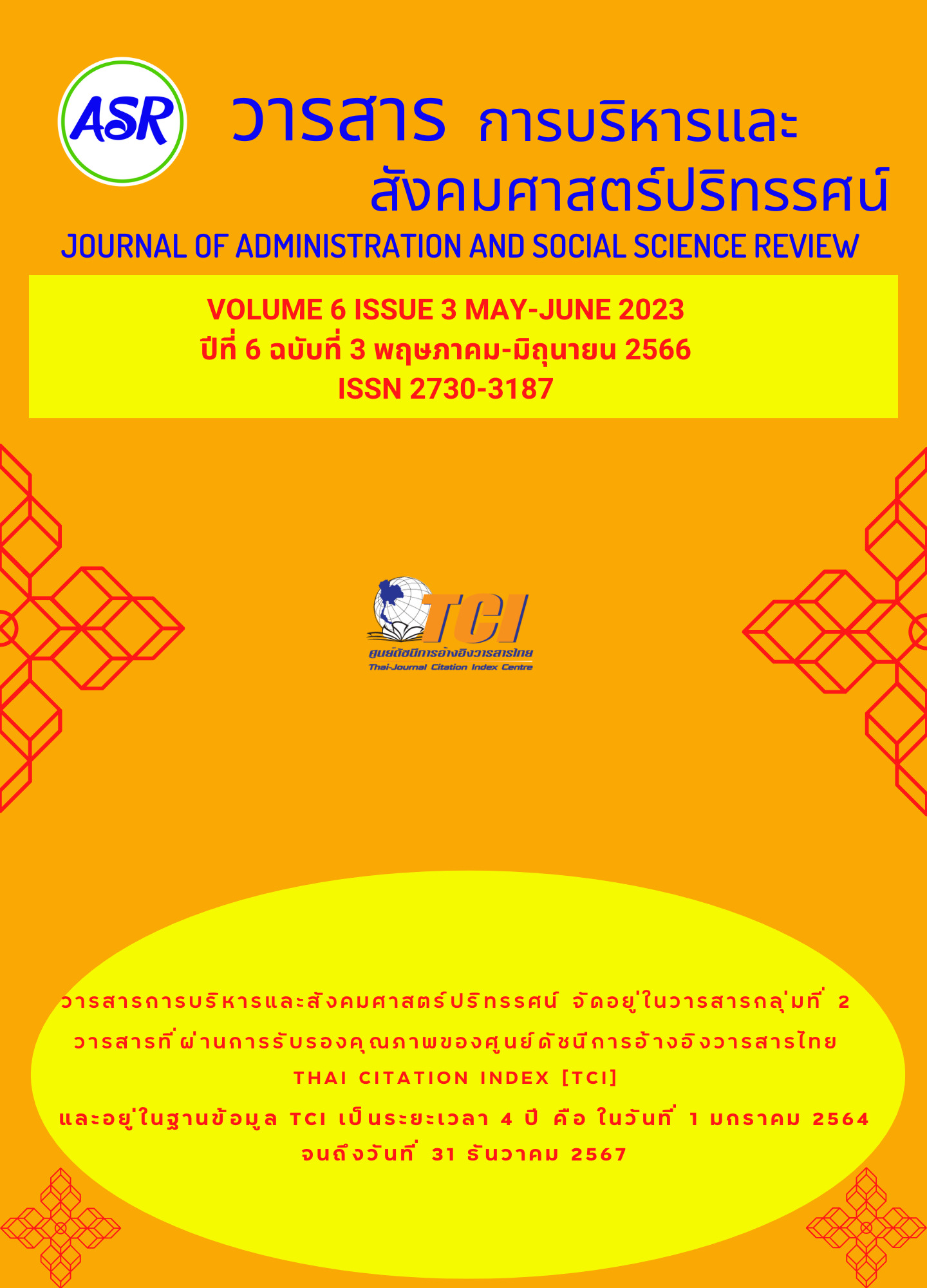The Roles of Community Leaders to Promote Community Participations to Formulate Sustainable Strength: Case Study of Ban Donchai, Wiangsa District, Nan Province
Keywords:
community leadership, participation, sustainable strengthAbstract
The objectives of this research were: 1) to study the context of Ban Donchai, Wiangsa district, Nan province, and 2) to study the roles, duties, characteristics, and work processes of community leaders in promoting community participations to build sustainable strength. The main informants were community leaders, village committees, and 15 members of the community through purposive sampling. The tools used were in-depth interview, observation record form, and small group conversation recording form. Data were analyzed through content analysis method which were presented using descriptive data.
The findings showed that Ban Donchai was a community in which residents’ way of life depended on closely the Nan River, engaging with agriculture. After taking time off from farming, they together weaved cloth, and made chili paste, rice crackers, and crispy noodles. Those interested in these activities were able to learn with the community experts.
The community leaders were responsible for coordinating activities both within and outside the community. They took initiative to inspire people in the community to act by providing education, training, and work visits. They took ideas and set examples, managed community relations, and served as consultants. Also, they were the center of the community souls with working principle, “Know, Love, Harmony.”
The characteristics of the community leaders were sacrifice, honesty, and transparency in their actions. The leaders had to be knowledgeable, trustworthy, moral and diligent. Also, they were willing to think and make decisions; they were creative team members and coordinators.
They were using the concept of harmony and generosity for the working process: emphasizing the member participations in the community and establishing its long-term strength supported by the government agencies.



